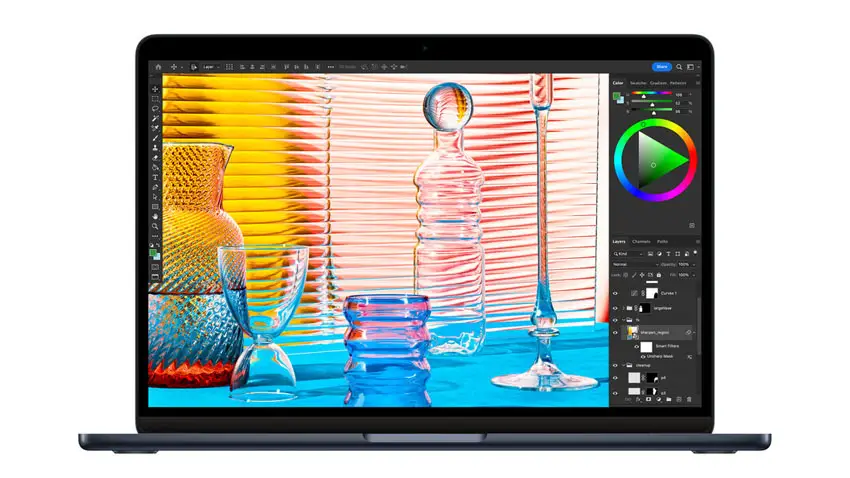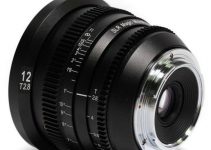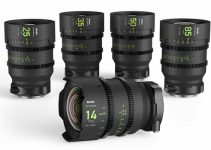Every new Apple computer is bringing with it tons of questions about which configuration is best. Apple silicon muddies the water even more since it uses a completely different architecture than older systems so that even the conventional wisdom doesn’t always apply. The M2 MacBook Air is the latest release and has a few options.
YouTuber Kevin Ross picked up a couple versions of the new laptop to figure out whether 8GB or 16GB memory is needed for video editing. Plus, he wants to see if the M2 MacBook Air with its new design is good enough for editing in general.
Kevin put together a few different timeline options in Final Cut for the tests:
- Mix of 4K H.265 and H.264 footage at frame rates of 30, 60, and 120 fps
- Mix of 4K footage configured as a multicam project with 6 camera angles
- 8K RAW footage transcoded to ProRes 4444
The two different models of MacBook are the base model with 8GB memory and 256GB SSD and an upgraded version with 16GB memory and a 1TB SSD. The projects are being run off external SSDs, so the variations in internal drive speed shouldn’t have a huge impact.
In the initial test the projects played back surprisingly smooth on both models. Looking at the actual memory usage data you can see that the 8GB was feeling more pressure. This project seemed to be using anywhere from 6-8GB of memory. On the 8GB model this meant that it was quickly jumping over to using the swap memory while the 16GB version was just fine.
What is interesting is that the 16GB model was running about 10 degrees cooler, probably because it wasn’t maxing out all the different parts of the computer to make it work.

Image Credit: Apple
Adding in a few new clips and running stabilization on them showed that both computers performed very similarly. Optical flow slow motion effects are a bit more intensive and that showed here, though again we are getting similar performance. This did start pushing the 16GB into swap memory territory, though not a lot, and it did finish up a few seconds faster than the base model.
Honestly, most adjustments and effects were not making either of these computers stumble. It was obvious that memory was getting pressured on the base model and swap was being relied on a lot.
The multicam project has about an hour of footage and six camera angles and this is starting to push the computers to their limits. This wasn’t silky smooth playback, but it did show the 16GB model holding in a much better position than the 8GB. The base model was locking up even going to check the measurements. While the 16GB was better this is really pushing it if this is what you need your computer to handle.
An 8K ProRes project is up next and that should be a little bit interesting since it is optimized a lot more for the M2 chip. The upgraded 16GB model is doing a much better job. It is playing back fine and running about 10 degrees colder. The base model was dropping a lot more frames and running hot. After a little time it did seem like the 8GB model was able to stabilize. This was done in Best Quality playback mode.
This test did reveal a big problem on the 16GB model at least—memory leakage. The upgraded version was using a massive 25GB of swap, which isn’t right. The 8GB model didn’t seem to have this issue and was using a more normal 9-11GB swap. Final Cut was showing a massive bug there.
If you are primarily a video editor it is not a perfect recommendation. The M2 MacBook Air might work for super lightweight projects and when portability is a major concern. But, you will need to consider upgrading some components and at that point you would be better off investing in the base 14” MacBook Pro for a lot more improvements.
Were you considering picking up the new MacBook Air?
[source: Kevin Ross]
Order Links:
Disclaimer: As an Amazon Associate partner and participant in B&H and Adorama Affiliate programmes, we earn a small comission from each purchase made through the affiliate links listed above at no additional cost to you.




